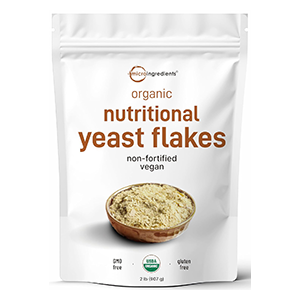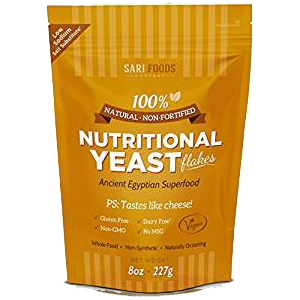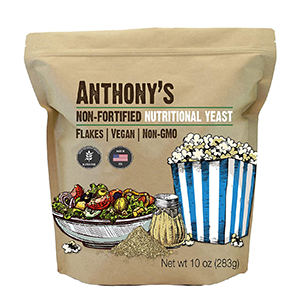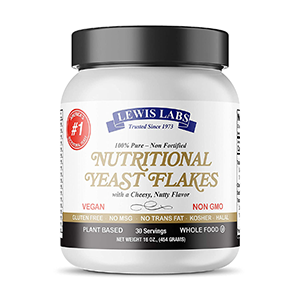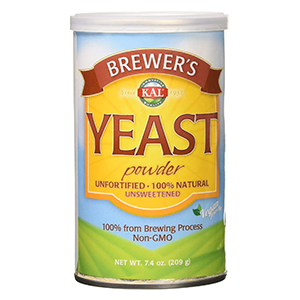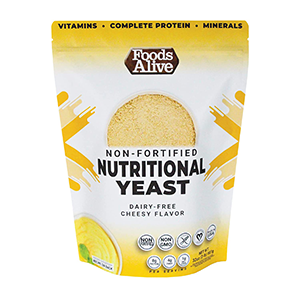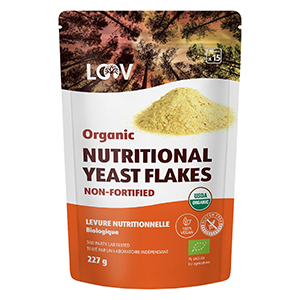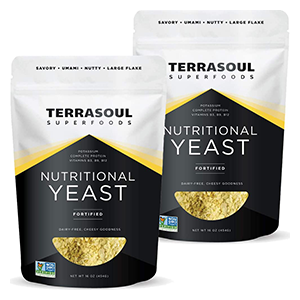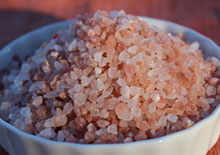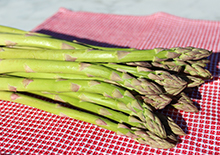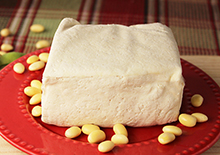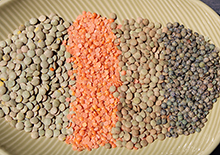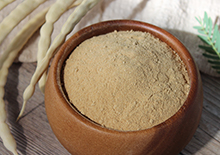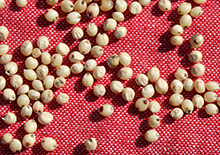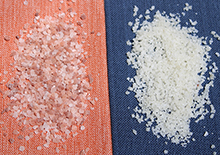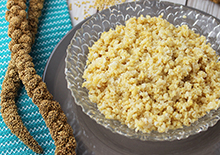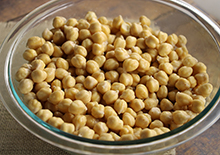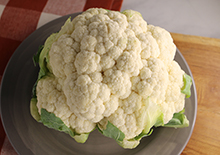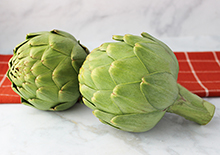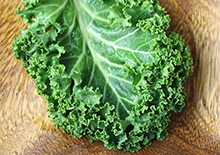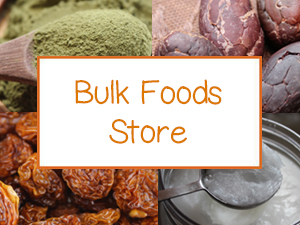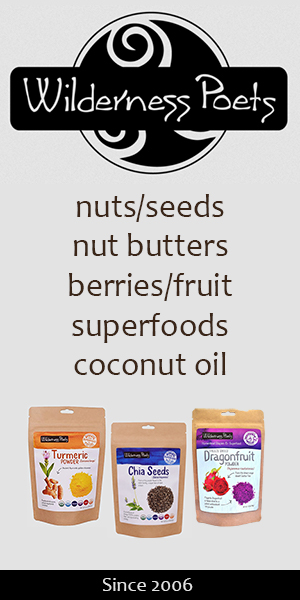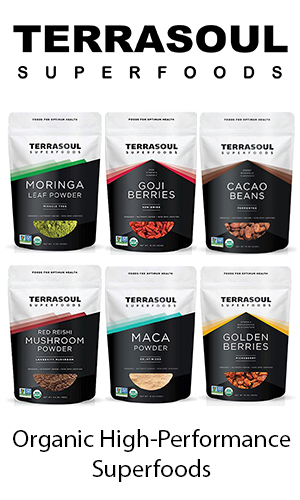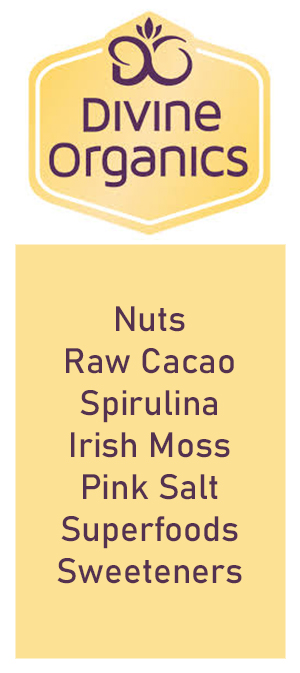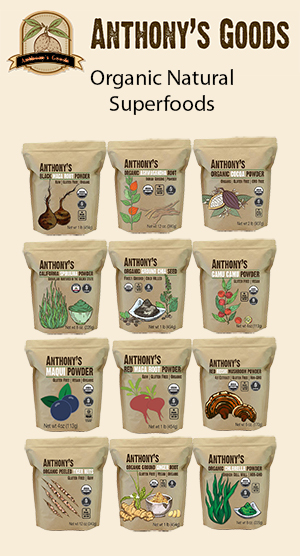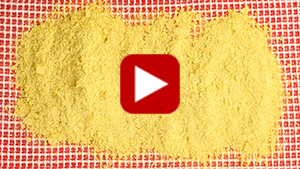- Home
- Plant-Based Cooking
- Nutritional Yeast Benefits
Top 5 Nutritional Yeast Benefits Simplified
1) Vegan Cheese Substitute
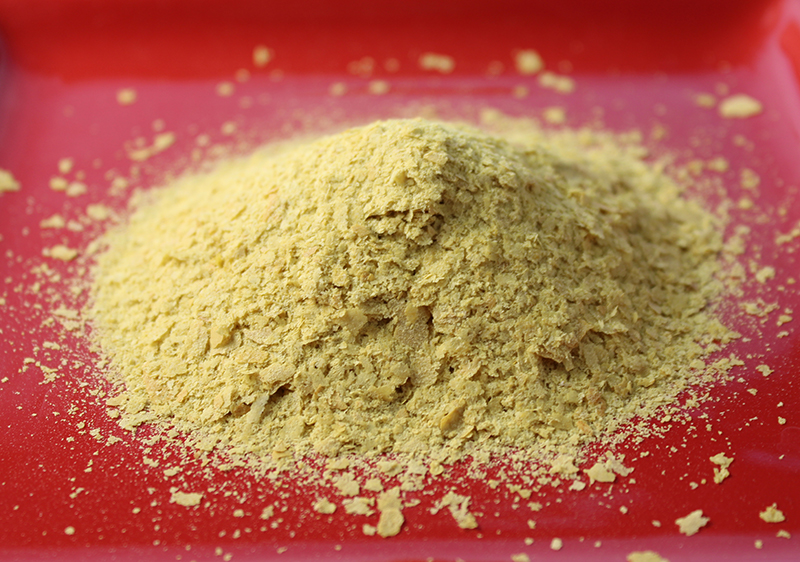
Is nutritional yeast vegan? Yes, it's an inactive dried yeast that has a unique flavor similar to Parmesan cheese but doesn't contain dairy. It is, therefore, most well-known among those adhering to a vegan or vegetarian diet, especially as a food topping.
It's also a source of naturally occurring glutamic acid, which provides benefits as a taste enhancer, giving it a mouth-watering umami flavor that can make it hard to stop eating.
Wondering how to make nutritional yeast?
Table of Contents
Vegan Cheese | Vitamin B12 | Ways to Use | Complete Protein | Beta-Glucans | Precautions | Shop
While we've heard that you can make homemade nutritional yeast from dry active Saccharomyces cerevisiae yeast granules, most consider commercially made nutritional yeast a better alternative.
That's because it goes beyond the scope of what any home kitchen can achieve with a specialized process that ensures the yeast is completely deactivated after heated.
(Visit our other page for more about the difference between brewers yeast vs nutritional yeast.)

2) Is Nutritional Yeast B12 Rich?
Yes, most nutritional yeast is B12 abundant, but that's not because the Saccharomyces cerevisiae yeast used to make it naturally produces B12. Most bright yellow nutritional yeast is a "fortified food". That means it’s been "nutritionally enhanced" with synthetic B vitamins including B12 or cyanocobalamin.
Is fortified nutritional yeast healthy? Balanced nutrient uptake of this type of B12 is sometimes not completely absorbable. Oftentimes, water-soluble B vitamins, like B12, that don't get absorbed will be excreted via the urine, turning it a neon yellow color. (*)
As far as using it as a vegan dietary supplement, it may not be a reliable source of this important essential nutrient. If it's the only B12 you consume, it is best to monitor your levels with periodic testing to make sure you're meeting bodily requirements. (*)
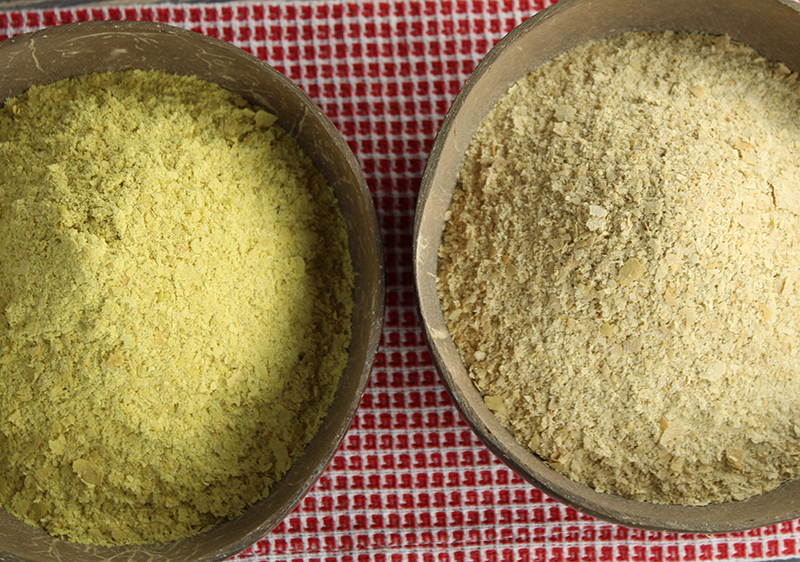
Nutritional yeast also comes "non-fortified" for those who prefer whole food vitamin sources rather than synthetic varieties.
Non-fortified is a lighter color and does not contain B12. It is however naturally high in many of the B vitamins such as vitamin B5, vitamin B6, vitamin B1 (or thiamin), niacin and biotin.
According to nutrition fact labels, it also contains trace minerals like molybdenum, magnesium, copper, selenium, iron and chromium.
3) Versatile Ways to Use Nutritional Yeast
There are many different ways to use nutritional yeast besides as a popcorn topping. One of its benefits is versatility.
Vegans, vegetarians and meat-eaters alike enjoy this cheesy-flavored food condiment sprinkled on salads, grains and beans.
It provides a thickness to soups, dressings and gravies as well as delivers that mentioned umami taste.
Of course, it’s very useful when making vegan cheese sauce, dips and pesto. We've personally used it in recipes for dehydrated nori nachos, nori sticks, cheesy kale chips and mac n'cheese.
It is often utilized as a pet food additive or when making homemade dog treats. We have found that many cats seem to enjoy it straight when placed in a dish.
Some of you may be asking, "Can I cook nutritional yeast" without losing nutrients? Most B vitamins are known to be relatively heat tolerant and will only diminish for example when making reduced gravies or sauces.
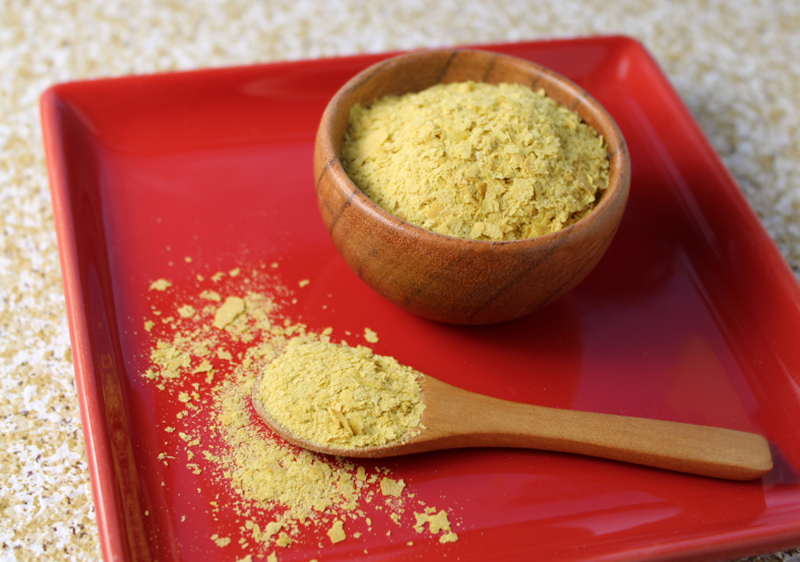
4) Vegan Complete Protein
Nutritional yeast is also known for its vegan protein content. It is actually considered a "complete protein", containing all essential amino acids.
These higher ratios are due to the fact that the active yeasts, which are grown on a sugar medium, are naturally forced to manufacture their own amino acids and other vitamins as a biochemical response.
The grams of protein may vary of course depending on the supplier. Most nutritional yeast labels show an average of between 2-5 grams per heaping tablespoon. By comparison, one egg contains roughly 5-6 grams of protein.
While nutritional yeast shouldn't be your only protein source, it's a good way to supplement, especially when adhering to a vegan or vegetarian diet.
5) Saccharomyces Cerevisiae Contains Beta-Glucans
One of the lesser-known nutritional yeast benefits is that it is a source of beta-glucans. This is a type of fiber found in foods like oats, barley and mushrooms but is also present in yeast species like Saccharomyces cerevisiae.
In research, the β-glucan in yeast has been shown to support immune health.
Precautions:
Nutritional yeast is generally safe for most people. It's best avoided however if you have an intolerance to dietary yeast. It is a good idea to consult your nutritionist or healthcare professional if you have sensitivity to excess synthetic vitamins and/or minerals or are taking any medications.
Shop Related Products (About Affiliates & Amazon Associate Paid Links)
Affiliate Disclaimer: This section contains affiliate product links. If you make a purchase through our recommended links, we receive a small commission at no additional cost to you. Thanks for the support.
